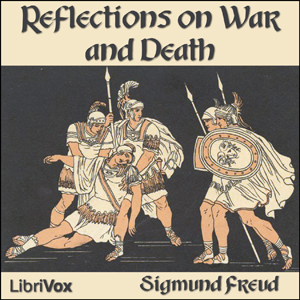
Anyone, as Freud tells us in Reflections on War and Death, forced to react against his own impulses may be described as a hypocrite, whether he is conscious of it or not. One might even venture to assert—it is still Freud’s argument—that our contemporary civilisation favours this sort of hypocrisy and that there are more civilised hypocrites than truly cultured persons, and it is even a question whether a certain amount of hypocrisy is not indispensable to maintain civilisation. When this travesty of civilisation, this infallible state that has regimented and dragooned its citizens into obedience, goes to war, Freud is pained but not surprised that it makes free use of every injustice, of every act of violence that would dishonour the individual, that it employs not only permissible cunning but conscious lies and intentional deception against the enemy, that it absolves itself from guarantees and treaties by which it was bound to other states and makes unabashed confession of its greed and aspiration to power. For conscience, the idea of right and wrong, in the Freudian sense, is not the inexorable judge that teachers of ethics say it is: it has its origin in nothing but “social fear,” and whereas in times of peace the state forbids the individual to do wrong, not because it wishes to do away with wrongdoing but because it wishes to monopolise it, like salt or tobacco, it suspends its reproach in times of war. The suppression of evil desires also ceases, and men, finding the moral ties loosened between large human units, commit acts of cruelty, treachery, deception and brutality the very possibility of which would have been considered incompatible with their degree of culture.
(Summary by J.C. Grey, from The Bookman: A Review of Books and Life, v.47: Mar-Aug 1918. First sentence edited for clarity.)

Other Audiobook
Audiobook: 1601: Conversation, as it was by the Social Fireside, in the Time of the Tudors
Please note: this recording contains strong language. “1601,” wrote Mark Twain, “is a supposititious conversation
Audiobook: Commonitory of Saint Vincent Lerins
This treatise of Peregrinus, a name assumed by St Vincent, supports the antiquity and universality
Audiobook: Idler In The Wilds
Although he was well known around the South Downs in West Sussex as ‘The Bee-man
Audiobook: Pony Rider Boys with the Texas Rangers
Yee-Haw!! The Pony Rider Boys are on the move again. This time the boys at
Audiobook: Heirloom – Complete
It is not the pleasing office of the writer of fiction to unfold for the
Audiobook: Royal Book of Oz (version 2 Dramatic Reading)
When the professor decides to outline the ancestry of the eminent people of Oz, Scarecrow
Audiobook: Sweethearts
Sweethearts is a comic play billed as a “dramatic contrast” in two acts by W.
Audiobook: Memoirs of a Country Doll
A doll tells the story of her adventuresome life in rural England. This story, written
Audiobook: Journael ofte gedenckwaerdige beschrijvinghe van de Oost-Indische reyse
Het “Journael ofte gedenckwaerdige beschrijvinghe” is een scheepsjournaal opgetekend door de Hoornse schipper Willem Ysbrantsz
Audiobook: Bible (KJV) 22: Song of Solomon
Also known as Song of Songs, Solomon’s Song of Songs, or as Canticles. The protagonists
Audiobook: Gold Hunters (Borthwick)
This is a robust, rough and tumble, first-hand account of the early California gold rush
Audiobook: Bab Ballads
The Bab Ballads are a collection of light verse by W. S. Gilbert, illustrated with